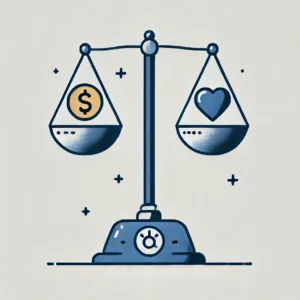Don’t Get Bit By Hidden Taxes in Retirement

Don’t Get Bit By Hidden Taxes in Retirement
Just about everyone hates taxes. They’re complicated and they often seem too high for moat taxpayers. Keeping track of the constantly changing laws and regulations can be unbearable for many, as well. So what about when you retire? Things will get a lot easier when you quit working, right? Not so fast. The fact is taxes in retirement might be even more complicated than while you’re working. For example,
• You may or may not be taxed on your Social Security benefits.
• Most withdrawals from a retirement plan come with federal income taxes, but state taxes depend on your location.
• Investment tax rates will also likely vary.
These are just a few of the things you will have to consider when you retire. So it’s best to be ready for them.
Social Security Taxes
How are Social Security taxes determined? It will depend on your combined income. Your combined income is determined by your adjusted gross income plus your non-taxable interest plus half of your Social Security benefit. Here’s how it plays out.
Single Filers
• If you have a combined income of less than $25,000 then you will not be taxed on your Social Security benefit.
• If your combined income is between $25,000 and $34,000 you could be taxed on as much as half of your SS benefits.
• If your combined income is more than $34,000 then as much as 85 percent of your SS benefits could be taxed.
Joint Filers
• Under $32,000 no tax• Between $32,000 and $44,000 up to 50 percent tax
• More than $44,000 up to 85 percent tax
To be clear you won’t lose this much of your benefit. The percentages are the amount of your benefit that will be taxed, at your regular income tax rate.
What About State Income Tax
There are 13 states that charge income tax on your social security benefits to a certain extent. There are seven states that don’t tax income, period. If you live in any of the other 30 states it will depend on several factors. Every state has different sales and property taxes, as well, so do your homework if you plan on moving in retirement.
Retirement Plan Distributions
For most retirement accounts the law requires you to start withdrawing money when you reach the age of 70½. These distributions are usually taxed at your normal tax rate. While this is not the case for everyone, for those who have saved a lot for retirement, even the minimum distribution could push them into a hire tax bracket. This could lead to an unexpected tax increase in retirement. For some, it might make sense to transfer some your IRA funds into a Roth IRA before you reach the age of 70.
Seek Help From the Pros
These are just a couple of the tax changes that can come with retirement that you should be aware of. As with any important tax decision, it’s always a good idea to meet with a tax professional and/or a financial planner to be sure you’re properly set up for the future. The fewer tax surprises you have in retirement the better.
For more updates follow GROCO on Facebook
From the Wrestling Mat to Data Innovation: How Dr. Naveen Singh is Reshaping Tech
In the world of high-stakes tech entrepreneurship, background stories don’t get much more unique than that of Dr. Naveen Singh. A former Olympic-style wrestler turned telecom executive, turned Distributed Ledger Technology pioneer, Dr. Singh has woven seemingly disparate fields—sports, healthcare, and cutting-edge tech—into a singular mission. Now at the helm of Inery, a decentralized database management system…
5 Dynamic Philanthropy & Impact Investing Insights
The Power of Impact Investing: Bridging Philanthropy and Profit This article is based on an interview of Geoff “Chester” Wooley, Co-founder, Patamar Capital and current Board member of SKS Microfinance, India’s largest microfinance bank by Alan Olsen on his American Dreams show on behalf of Legacy Builder’s invitation only philanthropy events. Impact investing is more…
3 Powerful Leadership and Mentorship Pillars
This article about powerful global leadership and mentorship pillars is based on an interview of Lew Cramer by Alan Olsen, CPA on his American Dreams show on behalf of Legacy Builder’s invitation only philanthropy events. In an era where global connections and visionary leadership drive progress, few individuals embody these principles as effectively as Mr.…
2025 State of Healthcare with Joe DeLuca
This week we welcome back Joe DeLuca, a healthcare innovator and executive leader with decades of experience in transforming health systems. Joe shares his journey from scientific research to becoming a trusted advisor and problem-solver in healthcare management and consulting. Key topics discussed: The current challenges and fragmented nature of the U.S. healthcare system. The…




